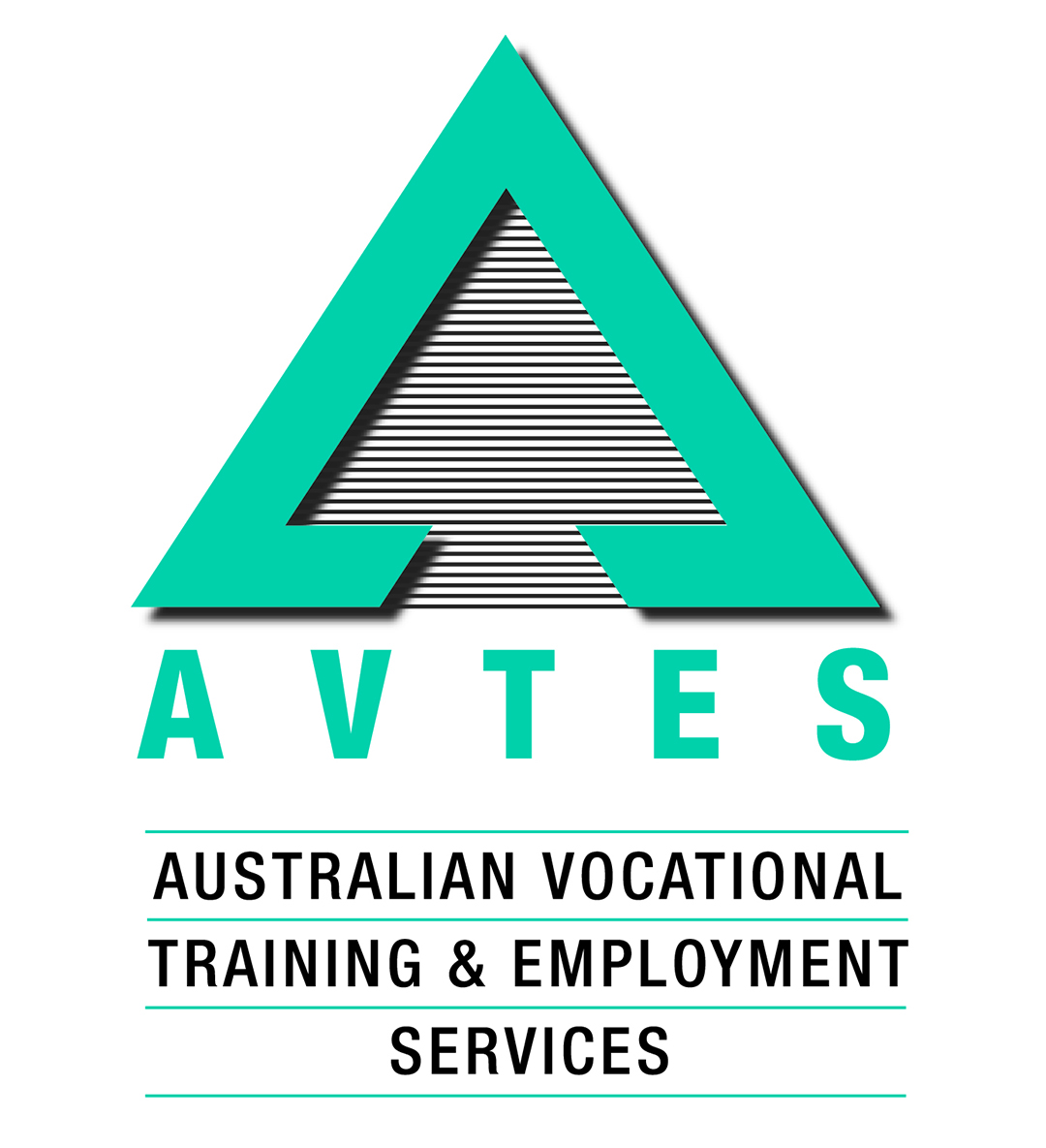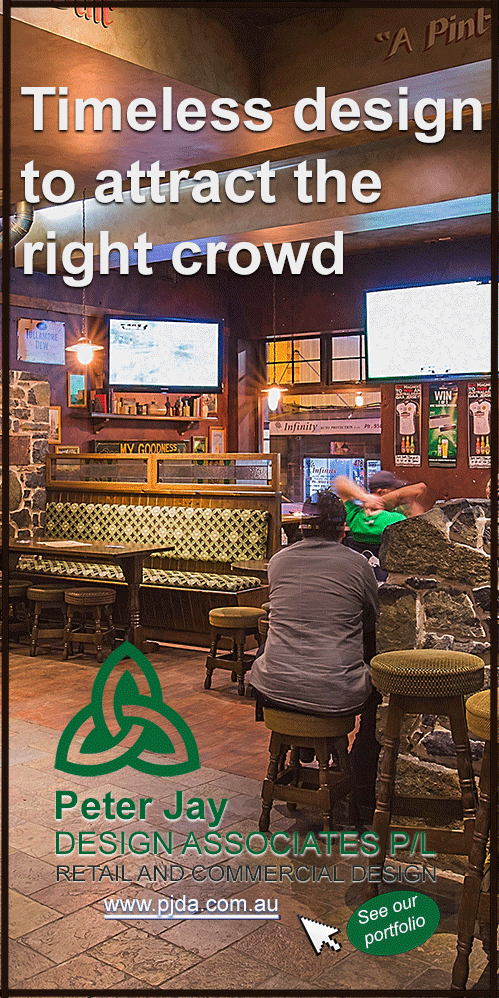Major Feature
Staff Crisis
Part 2:
The Solutions
Continuing and expanding upon the discussion on the looming shortage of suitable staff in pubs, bars and restaurants, in this second instalment we look at some of the revised practices emerging in the ways pubs can attract, hire, train and retain the right candidates. Clyde Mooney reports
In our September edition we approached the topic of what is shaping up to be a major shortage of hospitality staff in many parts of the industry and regions of Australia. The upheaval of a national shutdown and life-threatening virus put a halt to the vast majority of jobs in pubs, but as employment returns the problem of filling the roles comes into focus.
The ways in which the disruption have affected individuals are many and varied, finding personal safety influencing the desire for public-facing roles, and questions around the brutal uncertainty that comes with employment in such a volatile industry. Add to this reliance on large numbers of transitory workers who have returned to their homelands in the midst of a global pandemic, with no prospect of their replacements entering the country for some time.
In this deep-dive into the challenges in hospitality staffing we have spoken with key operators on ways they optimised their situation during the crisis. This revealed new initiatives, such as finding unknown talents in existing staff, and teams brainstorming new opportunities in the tumult of shutdown, producing adjuncts to hospitality that in the past would never have been considered.
“During restricted trading periods we kept up communication with all of our team and asked them about other areas they may have skills in that contribute to our business,” says Stephen Hunt,
principle of Hunt Hospitality. “We had a chef who came forward and said he could weld, a young student say he wanted to learn more and contribute to our marketing team, and a trainee say she wanted to learn about admin. This helped us to keep them busy.”
The month since Part 1 has also seen Victoria continue to fatigue under the pressure of a second wave and lockdown. This has delayed their onset of a staff shortage, but also dulled the industry’s chances of a swift recovery. Melbourne CBD venues in particular will “hurt the most” while international and state borders remain closed, according to Andrew Lewis, CEO of Colonial Leisure Group, which operates Victorian venues including Portsea Hotel, Albert Park Hotel, Lucky Coq and Half Moon, due to their reliance on full hotels and international travellers.
“We’re anticipating most of our venues will only be able to operate at 80 per cent for the next couple of years whilst the industry tries to get back on its feet,” he says. “We’re anticipating regional venues such as the Portsea Hotel will recover quicker with state boarders shutting and an increase in people travelling regionally within their own states.”
In Part 2 we will expand on the separate yet interrelated factors in employment, seen in the hiring and training of new staff, and how to attract and retain good candidates.
Major Feature
HIRING
In Part 1 we touched on some of the changes taking place in hospitality and other industries, and how pubs might benefit from displaced workers in sectors such as travel, with the majority of travel agents and airline staff out of work. Some of these industries utilise workers with highly suitable skillsets, and the disruptive situation may create opportunity for employers to access a fresh pool of candidates not previously seen.
Some hotel groups are already looking further afield, in complementary sectors and alternate sources, such as disability workers. Jason Jelicich, director at Momento Venues, believes competition amongst employers could get tough.
“Staff is always a pain point in pubs. Everyone’s going to be drawing on the same resources so you have to be creative and you have to start now – as early as possible.”
Successful hiring warrants serious consideration of what good employees will want in a position. Hospitality compliance and training specialist Leigh Barrett & Associates suggests there are several things to consider and that consistently, the attributes of Job Satisfaction, Organisational/Management Culture and Support, and an Advancement Pathway, are considered as important as remuneration.
Job satisfaction needs to be considered from both short- and long-term perspectives. In the short-term it is intrinsically linked to employee-employer match and staff retention. In the long-term, when an employee is not satisfied but continues to work in the organization, the employee may start to find reasons to dislike and criticise the business, which may sabotage team morale.
Positive organisational and management culture and support are critical because they have the power to either strengthen or undermine business objectives. They can drive employee buy-in and loyalty, attract staff who want to be committed, and foster harmony within the team.
Finally, LBA says Advancement Pathway is perhaps the most important thing to consider, from a career-building and industry survival perspective.
“The creation of an accountable, visible and supported pathway to success for an employee in an organisation is key to the success of the business,” says principle Leigh Barrett. “This means encouraging staff feedback on policies and systems/procedures, scheduling and documenting constructive staff appraisals, and targeting relevant and meaningful training.
“The question is: will you be ready to offer them a career, or just a job?”

*
The competition in employment services, particularly for part-time and casual staff, makes for a somewhat confused and crowded marketplace. Pubjobs was conceived by Danny Howard and partners in response to the constant problems seen in pubs acquiring reliable and skilled staff.
“I’m hopeful the next generation of publicans will spend the time and effort needed to keep a good staff member on their books by offering them incentives and or training to keep them working in their hotel,” says Howard.
“COVID-19 has certainly changed the landscape for all hoteliers and at pubjobs.com.au we want to be part of the rebuilding phase when eventually some sort of normality happens down the track.”
The new service is aiming to be the first point of call for publicans to list jobs, simply and affordably, and for 18-30-year-olds who want to start a career in hospitality. It is widely considered that the Industry will need newcomers and it is vital to be able to communicate with them, so Pubjobs’ understanding of the younger demographic incorporates social media managers that have a “finger on the pulse” of what will see this age group respond.
“I think we are in for some interesting times ahead and I think the pubs out there who invest in their staff with good habits and training will take advantage of what lies ahead,” suggests Howard.
Another hospitality specialist employment service is HospoHire, designed for hospitality by hospitality professionals, to assist venues in acquiring and hiring new staff, and take the wasted time out of the process. The company aligns candidates based on skills and culture to suggest the ideal staff member for a venue. The system targets candidates across multiple channels, assesses them, and alerts the person responsible for hiring when a suitable candidate is found.
Having worked in the industry, the founders observed how difficult it was to source, recruit, interview and hire quality staff. Even when talented hospitality professionals were available, the means of attracting and sourcing them is changing rapidly and traditional methods of filtering would-be jobseekers through paper or online resumes was outdated. They believed venues needed a way to source and assess job applications more efficiently.
How does the workplace culture at your pub stack up?
- Do we create policies and workplace programs based on what other employers do versus whether they fit our work environment?
- Do we hire employees who don't fit?
- Do we tolerate management styles that threaten employee engagement and retention?
- Do we create and communicate a clear and inspiring mission, vision, and set of values?
- Is our work environment lacklustre?
- Do we consider how our everyday actions (or inactions) as leaders are affecting the formation of our culture?
Provided by Leigh Barrett & Associates
Major Feature
The system uses a custom QR code – ‘Talent Acquisition Technology’ – in multiple locations to attract and capture applicants to roles. Applicants that come into a venue are seen to have more genuine intent, as compared to someone applying through an online job board, but the old paper application and resume are replaced by using the QR code. All applicants are then funnelled through an online assessment, with a goal to produce a database of applicants for a readily available pool of talent.

“It's similar to the old days of posting a sign in the window, except these days, it's done digitally,” says founder, Tom McAll.
“We’ve seen a number of different groups that we’re working with targeting newly redundant airline workers. These people are exceptionally well trained at providing customer service and are an incredible resource to be tapped.”

Tom McAll, HospoHire
McAll says when it comes to interviewing, employers can either read 200 resumes and try to figure out who might be best, or they can use Hosphire’s custom-built hospitality aptitude algorithms to put applicants through a seven-minute assessment that will determine who to hire, and why.
Barcats is a digital employment platform that launched mid-2017, connecting the hospitality community, working with 80,000 staff and 19,000 venues across Australia and New Zealand. Citing a focus on community, Barcats instantly connects venues looking to hire with quality staff in their area that are looking to work.
CEO and founder Jeffrey Williams notes a major lift in baby boomers signing up to work in pubs, increasing 187 per cent in the four months to September.
“Since April 2020, NSW has experienced the biggest leap in signups from over 50s, with a 254 per cent increase, followed by Queensland with a 212 per cent increase. Victoria’s increase is significantly lower, yet still 86 per cent.”
“Mature workers often have a strong work ethic and are super reliable and this is exactly what we need in the industry right now where venues are battling with younger staff not willing to work because they’re comfortable on Job Keeper and Job Seeker.”

Major Feature
Playing its part to help venues stay open and fill the skills shortage, Barcats is offering practical free training for the over 50s through its partners Ananas, Diageo, Lion, Brown-Forman, Nestle, Treasury Wines and Allara Learning.
Playing its part to help venues stay open and fill the skills shortage, Barcats is offering practical free training for the over 50s through its partners Ananas, Diageo, Lion, Brown-Forman, Nestle, Treasury Wines and Allara Learning.
“We are focused on getting Australians back to work to help keep the economy going. We are offering a 95 per cent discount on recruitment for Victorian venues, and have provided free recruitment for the last four months for our subscription customers.
“We’re faced with a significant staff and skills shortage in the hospitality industry that will ultimately impact the number of businesses that will be able to re-open and sustain through the summer and Christmas periods.
“We need to encourage more youngsters to consider hospitality as a career, but mature workers are going to play a key role in rebuilding our hospitality industry and more venues need to be flexible in their approach to hiring to make this work.”
Williams also suggests venues embrace further casualisation of the workforce and offer shorter shifts, such as splitting the chef role into two or three jobs throughout the day.
“Over 141,000 working holiday makers were living in Australia in December last year and a many of these people were working in our local bars, clubs, restaurants, cafes and hotels. This workforce has now returned to their home countries and there are no new backpackers are on the cards for a while.”
TRAINING
Ensuring employees have the right skills is both a matter for newcomers and ongoing staff, and there are plenty of avenues for employers to use to suit their individual requirements. Some employers question the benefit of training, suggesting the skilled worker may go elsewhere, but the alternative is unlikely to get them to stay.
Leading hospitality groups, such as Justin Hemmes’ Merivale, pay strong attention to the short- and long-term rewards of upskilling, and see it as a key part of the equation in a staff shortage.
“Employers will be even more focused on developing talent,” offered a spokesperson for the group. “Merivale will graduate 16 chefs from the Merivale Apprenticeship Programme later this year. The continuation of initiatives such as this one will be key for the future.
“Training and development has also continued to be a key focus for us in order to ensure that our team members are kept up to date with COVID-19 government regulations, and are
continuously upskilled on how to provide a safe and enjoyable environment for guests and team members.”
TAFE NSW has a wide variety of training courses, including many catering for new entrants to the hospitality industry; bar, barista, cocktail, café kitchen, food handling, table service, wine-matching and accommodation. TAFE also produces customised courses to suit organisations or regional skills shortages, and for exceptional circumstances; hygiene, infection control, compliance.

Hospitality courses range in price and include fee-free. The TAFE website lists all the qualifications and short courses currently available.
Jenni Downes is part of a specialist arm of TAFE NSW that works with industry to facilitate the best outcomes for students, employers and specific industry sectors.
“Teaching teams are in the process of creating more training opportunities – both free and commercial – in response to the COVID-19 disruption,” says Downes.
“There are also a range of courses that cater for leadership and management, and a great fee-free online program for Women in Business.”
Downes advises there are many and varied free video tutorials for operators on the Business Connect website.

For information and data on the Hospitality sector and its related occupations,
see the Australian and New Zealand Standard Industrial Classification (ANZSIC).
Major Feature
Le Cordon Bleu (LCB) is one of the world’s leading hospitality trainers. In response to the pandemic, in July it began 50 per cent scholarships on its 13 Higher Education (HE) Certificates, at both undergraduate and graduate levels.

These HE Certs, such as Food & Beverage Management, are seen as favourable for pubs as they allow chefs and hospitality workers from all facets of the industry to upskill their knowledge while continuing to work.
In September new online Undergraduate and Graduate Certificates began allowing candidates to study no matter where they are in the world. Fifty per cent scholarships are being offered for a limited time.
Undergraduate Certificates are provided in: Business, Event Management, Food and Beverage Management, Hospitality Financial Management, Hospitality Management, Hospitality Marketing, Gastronomy, Tourism Management.
Graduate Certificates are provided in: Business Administration, Hospitality Decision Making, Leadership, Hospitality Management.
Australian Vocational Training and Employment Services (AVTES) is a specialty hospitality industry training provider based in Victoria, founded in 1997. The company holds a reputation for delivering on-point training by industry experts, led by managing director Chris Fitzgibbon, who began in hospitality in 1972 as an apprentice chef.

AVTES is a major provider of apprentices in commercial cookery. Operators report multiple benefits in the apprenticeship system, notably improved confidence, and greater productivity through staff not needing to lose time at work for training, leading in turn to mean less direction and supervision required from managers.
The majority of training provided by AVTES since March this year has been part of its Free Training offer, contributing over $100,000 in 2020 to support businesses, through advice and practical knowledge.
The free training opportunities include all traineeships and apprenticeships eligible for government support, specifically: Cert.III in Hospitality – foodservice, food and beverage service, multi-skilled; Cert.III in Hospitality – Restaurant Front of House, hotel/bar and restaurant café; Cert.III in Commercial Cookery; Cert.IV in Hospitality – restaurant supervisor, café supervisor, hotel/bar supervisor; Cert.IV in Commercial Cookery.
“Only nine per cent of employers are utilising this system,” reports Fitzgibbon. “Apprenticeships and Traineeships are the secret weapon for hospitality employers.”
Beyond training requirements to prepare staff, the Workplace (Occupational) Health and Safety regulators in all Australian jurisdictions have been targeting gaps in what they regard as essential training, issuing “Give Cause” notices to businesses.
In terms of the hospitality industry, this training includes: armed holdup awareness, managing difficult and abusive customers, mental health awareness, basic workplace health and safety, and bullying and harassment.
Leigh Barrett & Associates’ Gamesure service offers a range of live and pre-recorded venue-specific training programs to address these subjects. LBA also provides cost-effective independent staff appraisal and management support services to optimise the retention of staff.
The exercise of training does not have to be all hard work, with some operators reporting using training and bonding days to help achieve optimal employment and happy workers.
“Morale is important to monitor and maintain, and having the team included in the decision-making process assists with keeping them motivated,” says Stephen Hunt. “That’s the good bit – get them involved and they’ll own it. It’s better for everyone.”
Managers and leaders must also coach teams on how to best manage the tricky balance between maintaining and policing COVID-safe practices while keeping guests feeling valued and important.
“Excellent service and communication skills are imperative here,” suggests Momento’s Jelicich. “This conversation takes practise, and this is where additional focus on communication skills should be employed.”
CAREER & RETENTION
As previously outlined, attracting and retaining quality staff is about more than remuneration. Just as relevant are the elements of career path, job satisfaction and organisational culture.
Hospitality has typically had a reputation for short-term or stop-gap employment, but there are plenty of careers and opportunities for newcomers to the industry. One of the most versatile is the culinary arts, where a job in a pub might lead to roles as a head chef or restaurant manager. This is furthered by the wide variety of modern cuisines being offered, from traditional to ‘gastro’ pubs, international flavours and variants, to fine dining.
Upskilling workers can also improve revenue prospects and versatility – particularly in the post-COVID environment. In this there are many opportunities, from upgrading basic hospitality qualifications to studies in business, people management, or social media.
“Extra skills further innovation in a new era,” says Le Cordon Bleu’s Karen Doyle. “A number of providers are running fee-free courses in response to COVID-19, to give opportunity for upskilling of hospitality workers during this period for further career or knowledge prospects.”
Major Feature
In recent years scandals centred around underpayment of hospitality staff have rocked headlines around the country, likely serving as a deterrent to potential workers. Hospitality union Hospo Voice championed the venue-rating website fairplate.org.au, which has seen hundreds of workers speak out with the aim of holding employers to higher standards.
The union suggests the optics around staff underpayment are a turn-off for patrons, reporting thousands of visits to the website each week by patrons seeking venues that pay properly. Accredited venues receive a window sticker, are featured on the website, and promoted on social media as industry leaders.
Following a campaign by the union, Victoria has now criminalised wage theft, Queensland is reportedly set to follow shortly, and the Federal Government has also indicated it supports criminal sanctions.
“Employers that want to attract and retain good staff need to pay their staff properly and treat them with respect,” offers a spokesperson for Hospo Voice. “Employers who refuse to do this will increasingly face criminal sanctions.”
Another major factor in the career choices of most people is financial security. Intrust Super CEO Brendan O’Farrell believes businesses that work on improving staff financial health could see positive results in staff loyalty and commitment.
“A workplace that helps staff feel safe, valued and fulfilled can result in improved staff retention, less sick days and better company culture,” he says. “Addressing financial concerns can also help with these areas. That was true even before COVID-19.”
Intrust has been in a position to witness first-hand some of the financial turmoil manifesting in hospitality workers, and warns of the long-term consequences.
“A significant drop in super contributions could have a huge impact on retirement savings – an impact that would only be compounded by any withdrawal of super under the Government’s early release provisions.”
Intrust recently rolled out a comprehensive, customisable Service Program to business clients to help staff improve retirement outcomes, providing educational seminars and free Super Health Checks. O’Farrell bodes this is a critical time to provide financial education and assistance, to help hospitality staff through difficult circumstances.
A survey conducted by Intrust found almost half of hospitality employers had reduced staff hours by at least 20 per cent and 60 per cent said staff levels may not return to normal until 2021 or later. O’Farrell notes more people recognising the importance of super as a financial asset, and believes the pandemic’s financial impact on the Australian economy has already prompted young people start to consider their long-term financial security.
“The earlier they capitalise on this, and start to look at strategies to accelerate their savings, the more opportunity their savings will have to grow, thanks to the magic of compound interest.
“If young people have access to educational services and simple financial tools to help them grow their savings, they will have more opportunity to consider the various catch-up strategies available to them. Businesses are recognising this and have been booking us to deliver programs to their staff.
“As we move towards what is hopefully the recovery phase of this pandemic, it’s important that young hospitality staff are aware of the contribution strategies that can help them rebuild their savings.”

When it comes to the matter of organisational culture, this begins with first impressions and grows along with the employer-employee relationship. Stephen Hunt says his group tries hard to ‘employ well and not often’, taking time when finding new staff and keeping an open and honest relationship with them. Boundaries are established, while allowing flexibility, and once a strong sense of trust has been established greater input into the business is encouraged.
“Most importantly, we listen, listen, and listen,” stresses Hunt.
The group recognises the team through awards nights, where staff who have performed well in ratings done by mystery shoppers receive a reward. This could be a bottle of champagne, or a dinner in a fine-dining restaurant.
Over and above regular management, Hunt explains that from time to time staff may need more specific help for optimum health and support.
“We offer them assistance through our EAP program, were we have trained psychologists who can provide assistance, and offer strategies to help them deal with both the pressures of COVID-19 as well as everyday stresses.
“They have three consults, if they wish, and if they need ongoing assistance they are assisted with a plan through the public system. It is kept confidential as to who attends; only if the team member wants to discuss it with management is it discussed.”
While operators in all states are reporting staff shortages to varying degrees, nowhere is this more ominous than in Victoria, where the second lockdown is leaving hospitality staff in Melbourne’s CBD struggling to remain hopeful about their job prospects.
A survey by Barcats involving 203 hospitality staff and venue owners in Victoria found more than 66.15 per cent have no confidence in the industry and believe there will be long-lasting effects on jobs.
“Although venues are trying to stay open with takeaway options and home deliveries, 78.65 per cent of Victoria’s hospitality staff are currently not working, with over half (54.69 per cent) of these workers from central Melbourne,” says Barcats’ Jeffrey Williams.
Almost 46 per cent of staff specifically state that the ongoing crisis in Victoria has made them join the ranks of those workers around Australia considering a career change away from hospitality.


